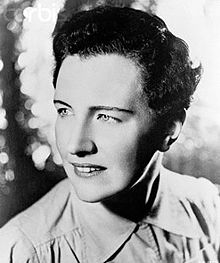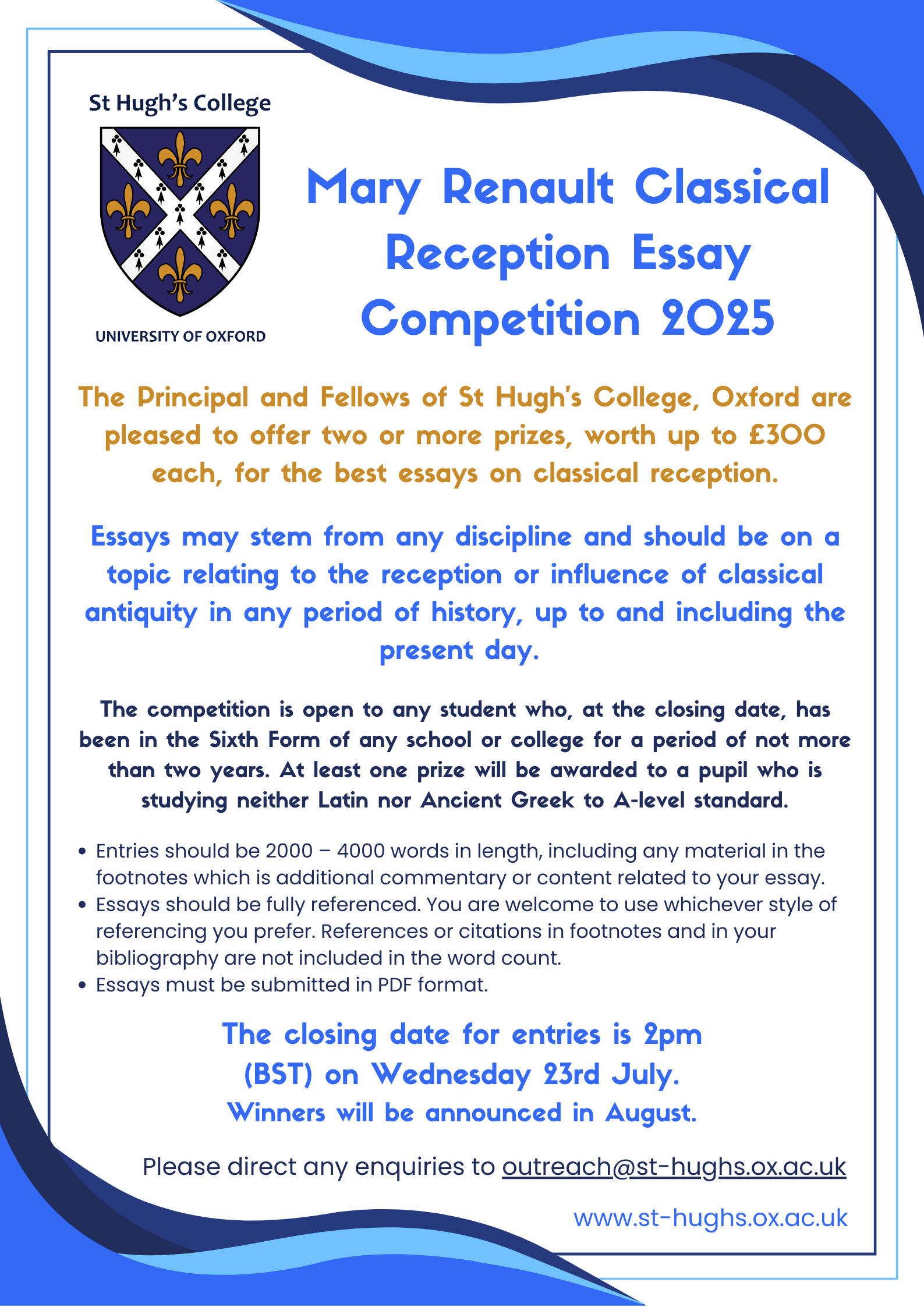The 2025 Mary Renault Competition is now open!
How to enter
Entering the competition requires you to complete two separate steps, as described below. These steps should be completed in immediate succession: please DO NOT complete Step 1 until you are also ready to complete Step 2.
Step 1
Fill in this registration form. You will be asked to enter your personal and contact details and the name of your essay.
Step 2
After completing the form in Step 1, you will receive an automated email containing the link to the submission portal, and full instructions on how to complete your submission. Please make sure that you read and follow these instructions carefully to ensure that your submission can be processed successfully.
Upon completing your submission, you will receive another automated email confirming that we have received your entry.
The deadline for completing your submission is 2pm (BST) on Wednesday 23rd July 2025. Entries received after this point will not be considered.
You are strongly encouraged to complete your submission well in advance of this deadline, to ensure that you have time to request assistance in the event of any technical issues. We may not be able to respond to individual queries received too close to the deadline.
If you have any questions about entering the competition, please check the FAQs before contacting us over email. If your question is not answered by the FAQs, or if you experience any issues with completing your submission, please get in touch with us at outreach@st-hughs.ox.ac.uk.
2024 Mary Renault Prize Winners
Winners
Alicia Dransfield – St Albans Girls’ School, St Albans (Year 12)
“…the universe expands to fill the self”: The Reception of Dionysian Madness by Donna Tartt
Harriet Huxley – Reigate College, Reigate (Year 12)
A Cowardly, Ironic Idol: Orpheus in the Elizabethan Renaissance
Edward Thomson – Winchester College, Winchester (Year 12)
Jessica Yang – Westminster School, London (Year 12)
“quis furor?”: Sympathetically Appraising the Reception of the Aeneid in Lucan’s Pharsalia
Highly Commended
Lucy Cochran – Wellington College, Crowthorne (Year 12)
Lilla Datta – King’s College School, London (Year 12)
Hadestown: Jazzing up the Underworld
Rowan Edwards – King Edward VI High School for Girls, Birmingham (Year 12)
Ben Woodward – King Edward’s School, Birmingham (Year 13)
The Reception of Homer in Margaret Atwood’s ‘The Penelopiad’
Who was Mary Renault?

This biography below is taken from the St Hugh’s College exhibition, recently on show in the Howard Piper Library.
‘Eileen Mary Challans was born on 4th Sept 1905, the daughter of Frank Challans, a medical practitioner. She attended Romford House School, Forest Gate, and Clifton High School, Bristol before matriculating at St Hugh’s in Oct 1925 to read English Language and Literature, obtaining a BA (III) in 1928.
During her time at St Hugh’s, she developed a love of ancient Greece, Crete and Macedon – a setting which resurfaced in many of her novels. Although she had initially intended to become a teacher, in 1933, after a period of illness, she returned to Oxford and became a nurse at the Radcliffe Infirmary, obtaining a nursing degree in 1936. Here she met her lifelong partner, Julie Mullard.
She published her first novel, a hospital romance called Purposes of Love, in 1939, under the pseudonym Mary Renault, the name by which she became known. She continued to write and publish whilst nursing during WWII and her novels developed overtly homosexual themes, which she treated honestly and sympathetically. Her sixth and last non-historical novel, The Charioteer, was published in 1953. Mary moved on to writing historical novels set in Ancient Greece, eventually publishing eight, the first being The Last of the Wine in 1956 and the last Funeral Games in 1981.
Although her portrayals of homosexuality provoked outrage in British society at the time, MGM presented her an award for her 4th novel, Return to Night, and she was able to afford to emigrate with Julie to South Africa in 1948, never to return to England. They both became South African citizens and were involved in the early anti-apartheid movement.’

